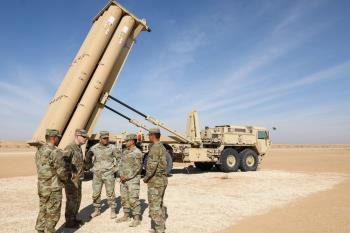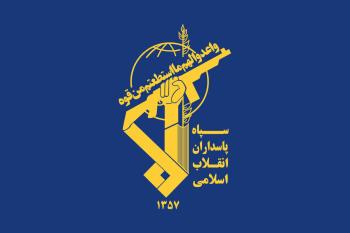Alwaght- Blistering feet shuffle along the path leading to Karbala, the city often described by pilgrims as ‘heaven on earth’. The signs seem to duplicate as the walkers feel the journey is getting longer by the step. “How many kilometers left?” their feet ask their hearts, which have left their bodies and raced them to Karbala as impatience begins to surface. The journey, they say, is an eternal longing to the evanescent, it feels everlasting compared to the transience of the time spent at the destination, yet transcendent enough to make them choose the long way to get there.
The plane lands in Najaf, 80 kilometers, 1452 poles away from Karbala where the shrine of Imam Hussein awaits millions of visitors in open arms. It takes one hour by plane to cross that distance but instead they choose to walk on the path of love.
“The Ziyara [visit] of Arbaeen isn’t recorded in our narrations as much as other days, for example on Arafah or Ashura, but it is mentioned as one of the five signs of the believer,” says Sayed Hussein Makki.
Ali Musawi, an Iraqi living abroad, begs to differ. He says the Arbaeen has hardly any religious significance.
“Actually, Arbaeen itself had little religious relevance and so the actual walking had no meaning in terms of religious practice.”
However, Musawi, who would rather visit Karbala in other times of the year, does acknowledge its impact. “It get the Shiites involved in a mass religious gathering…It does have religious effects. People who go to the Arbaeen get attached to Imam Hussein, his family and friends.”
Joumana Jaafar has been to the Arbaeen commemoration. Although she didn’t get a chance to go this year, she believes the pilgrimage transcends the triviality of everyday life.
“You forget the world and its calamities, your family and friends. It’s you and God. It’s you focusing on one path, a path that leads to freedom, happiness, and peace,” she says as she tries to explain, “It’s unexplainable. It’s crowded and tiring and it takes effort but you forget all that, you don’t feel the time because it passes so fast and you don’t feel your legs. You just feel content.”
Days turn into nights and their feet are still dragging them through the wasteland of waiting. In the horizon a mirage of a dome they are parched to see glitters. But the numbered poles remind them that the oasis is still far away.
Cups of warm tea to cool down the flaring hearts are poured, hot meals and warm beds are offered by strangers who are all too familiar as the servants of Imam Hussein. Passing along cities and towns, men and women volunteer to wash and treat the feet of marchers who have been worn out by walking. They ask for nothing in return for their services for they believe they will receive their reward in the hereafter.
“It is something so important for the world to see right now, how so many millions of people are taken care of and fed for free at a time when refugees are being refused asylum into countries... the Ziyara of Arbaeen is like a sanctuary for the free people of the world,” says Sayed Makki as he described the atmosphere to Alwaght.
Along the path, everyone becomes equal. Walking knows no luxury or title. People from all walks of life march under the same sky from different starting points toward the same endpoint.
“Each step inspires growth when in the remembrance of Imam Hussein, each step taken with sincerity is one closer to heaven, each step trounces upon our sins,” the Islamic lecturer says.
After at least two days of walking, the pilgrims reach the shrine. Jaafar describes it as an overwhelming experience, a moment at which the pilgrim cannot help shedding tears of joy, of sorrow, of disbelief.
“It does strengthen your faith, it’s a spiritual journey and that is what religion is all about. To believe in the first place and to submit completely… When you finally reach [the shrine] and you can’t explain how you feel and you cry out, you can’t stop crying. It’s too powerful,” she relates.
Sand and blood
Traversing through a country where the blood of Imam Hussein watered the sand inspires millions of Shiites Muslims. The act itself becomes ablution and the long walk an act of worship. Armed with faith and overcome by adoration, these pilgrims become warriors as their human fears are diminished to a speck of sand.
The land of Iraq has been inundated with a wave of bloodshed as the so-called Islamic State in Iraq and Syria, a terrorist group known as ISIS, killing in the name of Islam, regards Shiite Muslims as heretics.
Despite the imminent threats, these Shiites whose will is made of iron, say no danger will be enough change their route.
When asked about whether possible ISIS attacks might deter her from completing her journey, Hoda Al-Sayed, a British Shiite, who has begun her walk to Karbala this year, said: “On the contrary, it makes us more determined to make this journey and visit our revered Imam. He taught us to stand up against oppression and injustice, so our Ziyara [pilgrimage] will also be a chance for us to renew our allegiance to Imam Hussein as that we will not tolerate any form of oppression wherever it may be and whomever it is committed against.”
For the third consecutive year, Mandy Farhat, an Australian who recently moved to Lebanon, has embarked on the same journey.
Farhat says the threats issued by ISIS do not scare her. Instead, she believes the situation in Iraq has encouraged many to undertake the pilgrimage.
“I remember once seeing a sign on the way to Karbala which read: If it rains Daesh, nothing will stop us from reaching the shrine of Imam Hussein.”
“The Arbaeen has become more than just a spiritual journey,” she adds, pointing to the fact that the pilgrimage is part of the fight.
“We are aware of the symbolic power that Arbaeen has in the fight against Takfirism. Through our commemorations the revolution of Imam Hussein continues to gain momentum every year,” Farhat told Alwaght.
Another British pilgrim, Nadeem, is attending the Arbaeen again.
“The very example of Imam Hussein, his family, and friends being in Karbala motivates us. Death is a threat that is more real than life itself so it can happen anywhere,” he emphasized.
For Mariam Paz, an Argentine Shiite living in Iran, it’s as simple as sacrificing for love.
“Well, if going to Karbala to meet someone we love so much means dying, so be it. I don’t mind it at all,” she gives vent to her longing.
Batool Assi and her husband Ali Bazzi both feel the same way about the Arbaeen. They give historical and religious context to their opinions.
“If it weren’t for Imam Hussein’s blood, Islam wouldn’t have survived until today, and by visiting him we are keeping Islam alive. Since we weren’t present at the Battle of Karbala, it is our duty to return the favour: sacrifices and love by following his path and visiting him,” Assi said.
Bazzi echoed this, saying the Shiites have long been persecuted over their beliefs.
“ISIS isn’t something new, 1000 years ago during the Abbasid era, the same metanlity was present as there Fatwas issued to chop iff the hands of those who visit Imam Hussein …and then to even kill the visitors…Our Imams, at that time, continued to urge Ahlulbayt [household of the Prophet] followers to visit Imam Hussein.”
Hussein Rada, who was named after the revered Imam, has never been to Karbala. But that doesn’t mean that he will not, someday, make the pilgrimage toward what he said represented the ultimate truth.
“Neither ISIS nor any other Takfiri group can scare us… It’s about telling them that nothing can defeat the truth, that they can bomb us, kill us, [slit our throats], and we will still grow in number walking toward what represents the [ultimate] truth.”
Since June 2014, when the terrorist group took over Mosul, northern and western Iraq have been consumed by violence as an ISIS expansion bid plunked the country into a whirlpool of bloodshed. In its course, ISIS has carried out brutal attacks against ethnic and religious groups including Shiites, Sunnis, Kurds, and Christians.
Heaven on Earth
The Arbaeen commemoration where millions of Shiites walk every year until they reach the shrine of Imam Hussein, Prophet Mohammad’s grandson marks 40 days since the passing of Ashura, the day of the Battle of Karbala occurred on the Islamic calendar.
Last year, the number of pilgrims reached a record of 17.5 million. That’s why ISIS sees the event as an easy target. However, Security forces are on high alert, enforcing severe measures to ensure the safety of the annual commemoration.
Mariam hopes that one day she will be granted the honour of visiting the shrine of Imam Hussein.
“Being in his presence is a journey of love. Love for him has no limits…and I’m sure that for his [followers] and servants, dying in his presence is sweeter than honey,” she told Alwaght.
The road to Karbala is long yet fleeting, fatiguing yet easing, strenuous yet rewarding, and the place where the bitter blood of death and the sweet honey of paradise are savoured. Described by many as “heaven on earth”, Karbala is the end, the road is the means, and half the journey is getting there.


























